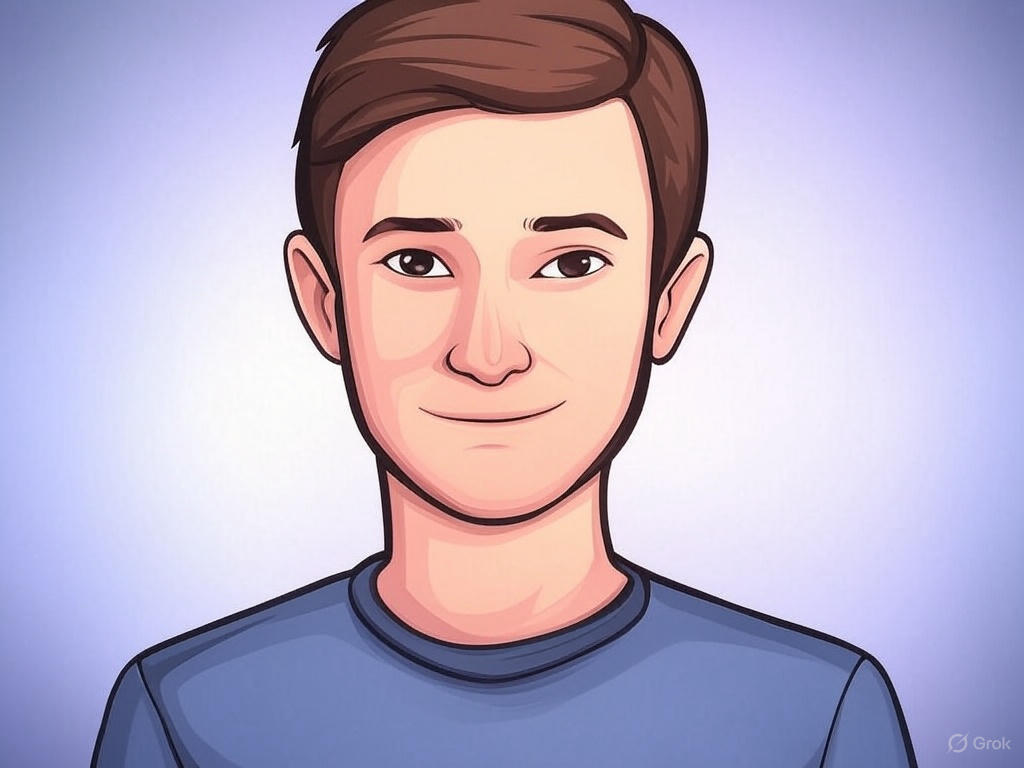Rory Sutherland Habits - Unconventional Wisdom for Modern Challenges
Decoding Rory Sutherland's Habitual Genius
Rory Sutherland, a renowned figure in advertising and behavioural science, champions a unique approach to problem-solving and innovation. His habits are rooted in understanding human psychology, emphasizing counterintuitive strategies and the power of perception. Sutherland's methods encourage challenging conventional logic and embracing 'irrationality' to unlock hidden opportunities and create meaningful impact.
His habits span from leveraging storytelling for influence to designing environments for behaviour change. He masterfully blends intellectual curiosity with practical application, advocating for psychological solutions over purely technological ones. These habits offer a toolkit for anyone seeking to enhance their creativity, decision-making, and overall effectiveness in a complex world.
- Embracing unconventional thinking and challenging assumptions
- Focusing on psychological leverage and perceived value
- Prioritizing storytelling and building fame for influence
- Creating environments and cues for desired behaviors
- Valuing 'useful inefficiency' and serendipity
Unlock the power of unconventional thinking and discover how Rory Sutherland's habits can transform your approach to work, creativity, and life.
Filter Habits
 Rory Sutherland's Habit Sets
Rory Sutherland's Habit Sets

Experiment with new behaviors
Forcing oneself to adopt unfamiliar actions to uncover hidden benefits. This helps identify unexpected advantages in alternative approaches.
Why This Matters
Rory Sutherland believes human nature resists change, but imposed behaviors reveal invisible benefits. He uses this to challenge assumptions in marketing and decision-making.

Build fame through storytelling
Leveraging public speaking and content creation to establish authority. Focuses on memorable narratives over technical explanations.
Why This Matters
Sutherland prioritizes fame as a multiplier for influence. He argues it reduces friction in business by attracting opportunities organically.

Design environment for habits
Modifying physical spaces to encourage desired behaviors. Examples include placing fruit bowls in visible locations.
Why This Matters
Sutherland teaches that environmental cues override willpower. He references Vietnam soldiers' addiction patterns to show context dependence.

Use visceral health cues
Implementing tangible indicators like urine color charts to drive behavior. Makes abstract concepts physically observable.
Why This Matters
Sutherland advised NHS Nightingale to use urine charts for hydration compliance. He believes concrete feedback beats theoretical reminders.
Optimize virtual meetings
Structuring video calls to maximize time reclamation. Includes recording meetings and asynchronous follow-ups.
Why This Matters
Sutherland pioneered Zoom Fridays pre-pandemic. He values recovered commute time as life-enhancing 'temporal arbitrage'.
Challenge conventional logic
Systematically questioning 'obvious' solutions. Asks why trains must be faster rather than more enjoyable.
Why This Matters
Sutherland's 'Alchemy' philosophy values psychological solutions over technological ones. He seeks counterintuitive leverage points.

Take physical creativity breaks
Doing manual tasks like dishwashing when mentally stuck. Uses bodily movement to stimulate new perspectives.
Why This Matters
Sutherland finds kinetic activities help solve complex problems. He believes cognitive flexibility requires environmental shifts.
Write weekly columns
Maintaining regular publication schedule for essays. Combines behavioral science insights with current events.
Why This Matters
Sutherland's Spectator column practices 'thinking in public'. He uses writing to refine ideas through audience feedback.
Embrace productive procrastination
Delaying task initiation to allow subconscious processing. Trusts incubation periods for creative breakthroughs.
Why This Matters
Sutherland argues creativity requires 'comfort with uncertainty'. He resists linear workflows for complex problems.

Leverage platform-specific content
Tailoring messages to LinkedIn, X, and TikTok audiences. Repurposes core ideas across formats and demographics.
Why This Matters
Sutherland maximizes reach through multi-platform presence. He adapts behavioral science insights for different media literacies.

Protect serendipity buffers
Scheduling unstructured time between meetings. Allows accidental discoveries and relationship building.
Why This Matters
Sutherland argues video calls eliminate hallway conversations. He intentionally creates gaps for spontaneous interactions.

Question metric tyranny
Resisting over-reliance on quantifiable data. Prioritizes qualitative human experiences in decisions.
Why This Matters
Sutherland criticizes spreadsheets for ignoring psychological value. He advocates measuring what matters, not what's measurable.
Practice perceptual arbitrage
Identifying value differences across contexts. Examples include repricing identical goods for new markets.
Why This Matters
Sutherland's marketing philosophy centers on perceived value. He looks for psychological leverage over functional improvements.
Maintain intellectual promiscuity
Studying diverse fields from evolutionary biology to medieval history. Connects disparate concepts for novel insights.
Why This Matters
Sutherland's innovation comes from cross-disciplinary thinking. He resists specialization to maintain creative flexibility.

Advocate for psychological safety
Creating environments where unconventional ideas are welcomed. Uses 'stupid idea' sessions to spark innovation.
Why This Matters
Sutherland's Ogilvy team thrives on non-judgmental brainstorming. He knows breakthrough ideas often seem illogical initially.

Implement MAYA principle
Balancing innovation with familiarity in product design. 'Most Advanced Yet Acceptable' approach for adoption.
Why This Matters
Sutherland advises making changes evolutionary, not revolutionary. He cites Jaguar's distinctive switches as ideal MAYA execution.

Embrace useful inefficiency
Tolerating apparent waste for hidden benefits. Examples include in-person meetings for relationship depth.
Why This Matters
Sutherland argues efficiency kills serendipity. He values 'irrational' investments that build trust and creativity.

Cultivate Welsh work ethic
Prioritizing horizontal team structures over hierarchy. Encourages informal collaboration and idea sharing.
Why This Matters
Sutherland's Welsh roots influence his anti-hierarchical leadership. He believes flat organizations unlock grassroots innovation.

Practice counterfactual thinking
Imagining alternative historical outcomes for perspective. Asks 'What if penicillin was discovered today?'
Why This Matters
Sutherland uses historical comparisons to challenge presentism. This helps identify overlooked opportunities in current systems.

Host Nudgestock festival
Curating annual event blending behavioral science and creativity. Features diverse speakers from academia to entertainment.
Why This Matters
Sutherland created Nudgestock to cross-pollinate ideas. The festival embodies his belief in interdisciplinary innovation.
Key Takeaways for Practical Application
These habits provide actionable insights into how to approach challenges with a fresh perspective. By understanding the core principles behind Rory Sutherland's methodologies, you can start integrating these powerful techniques into your own life.
- Challenge Conventional Logic: Question the obvious and explore counterintuitive solutions to find unique leverage points.
- Embrace Psychological Insights: Focus on understanding human behavior and perception to drive effective strategies in any field.
- Build Fame Through Storytelling: Leverage narratives to establish authority and organically attract opportunities by making your message memorable.
- Design for Desired Behaviors: Modify environments and use subtle cues to gently influence habits and encourage positive changes.
- Value Serendipity and 'Inefficiency': Create space for spontaneous interactions and unexpected discoveries, understanding that not all valuable things are efficient.
Start experimenting with these habits today and unlock your own potential for unconventional thinking and impactful action.
